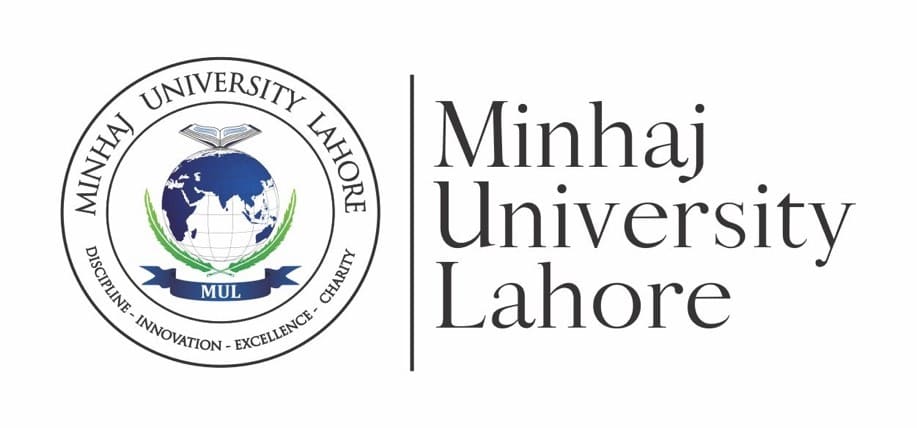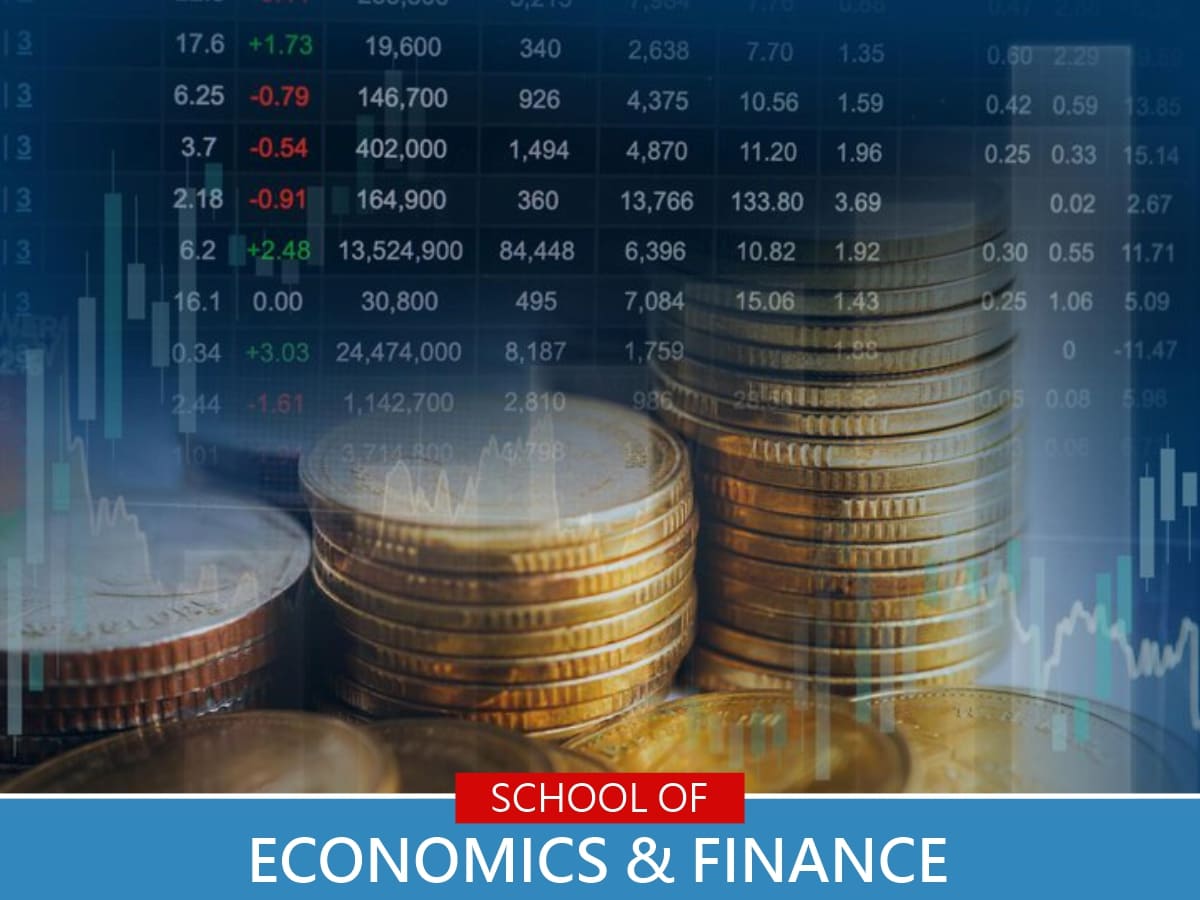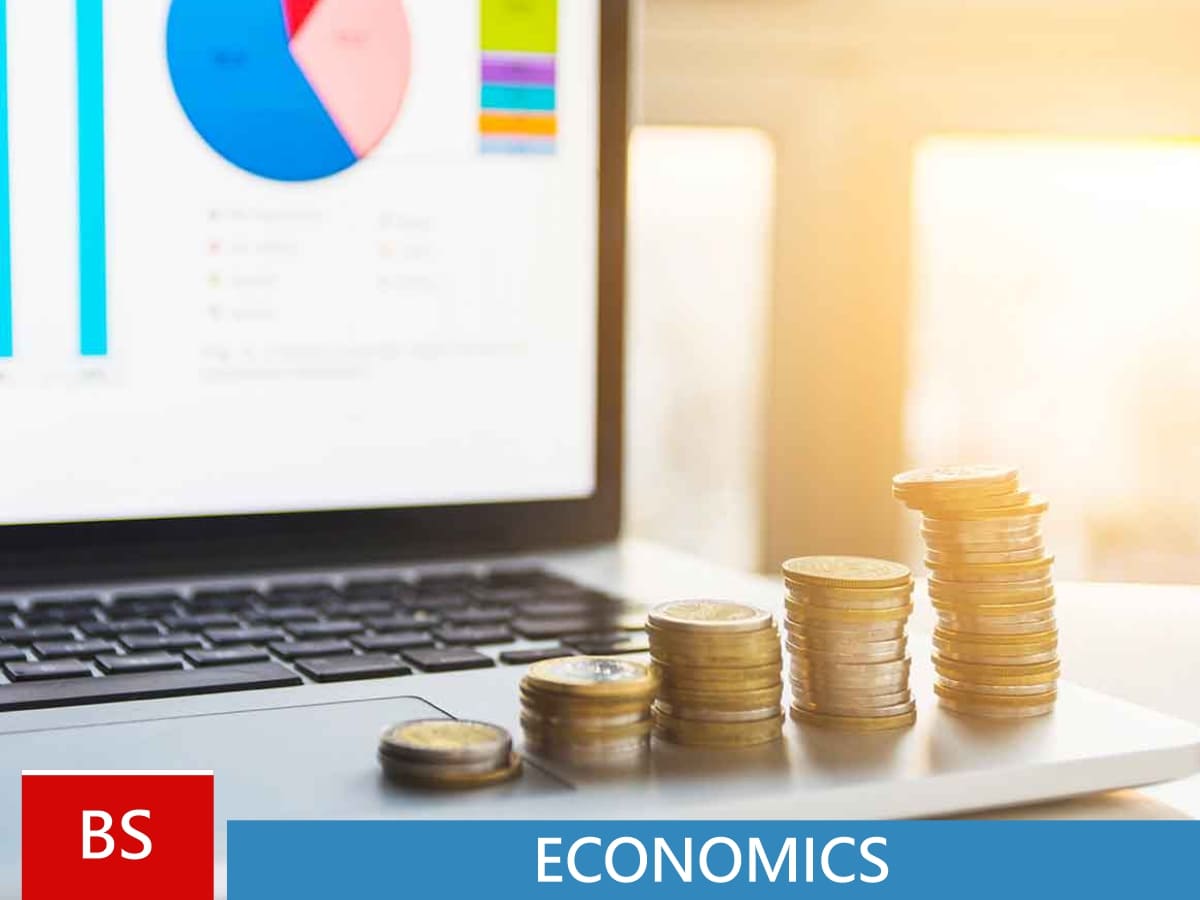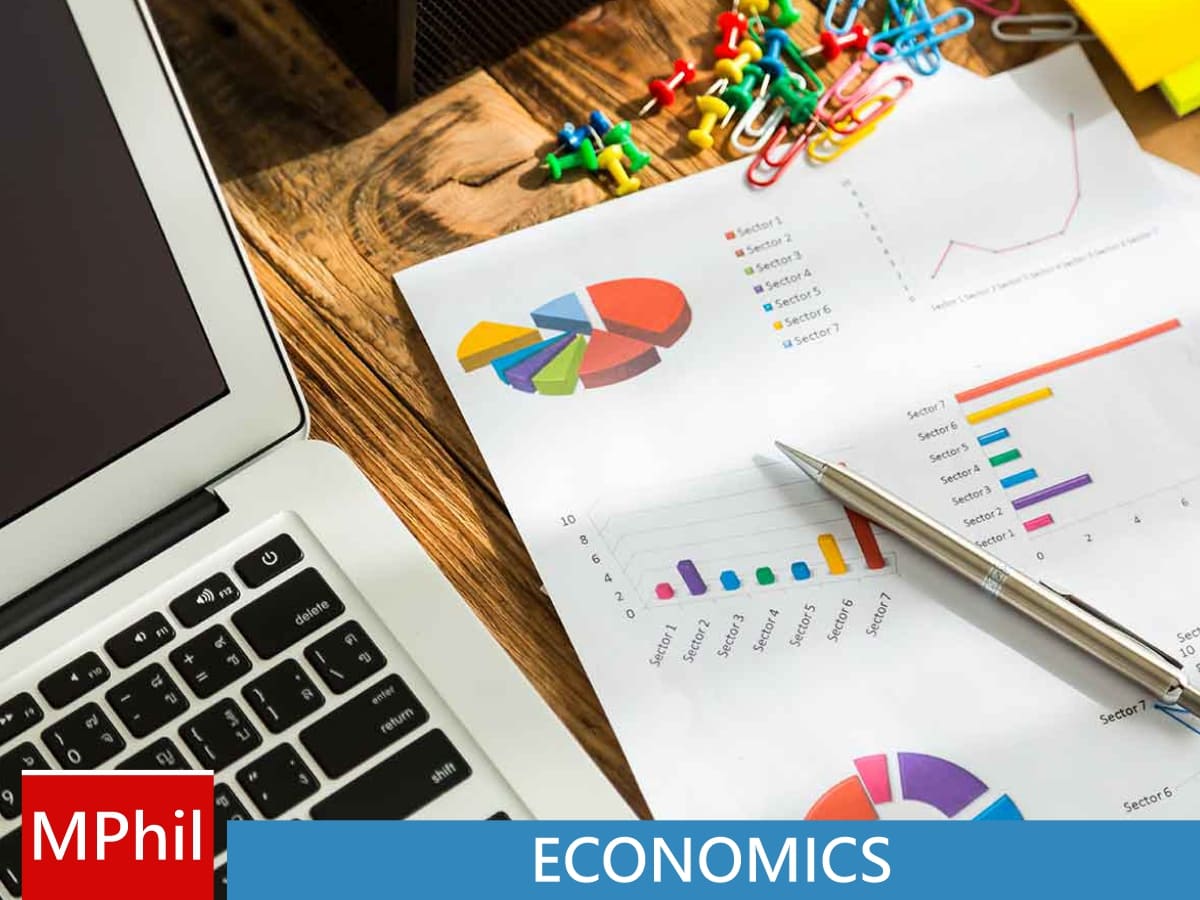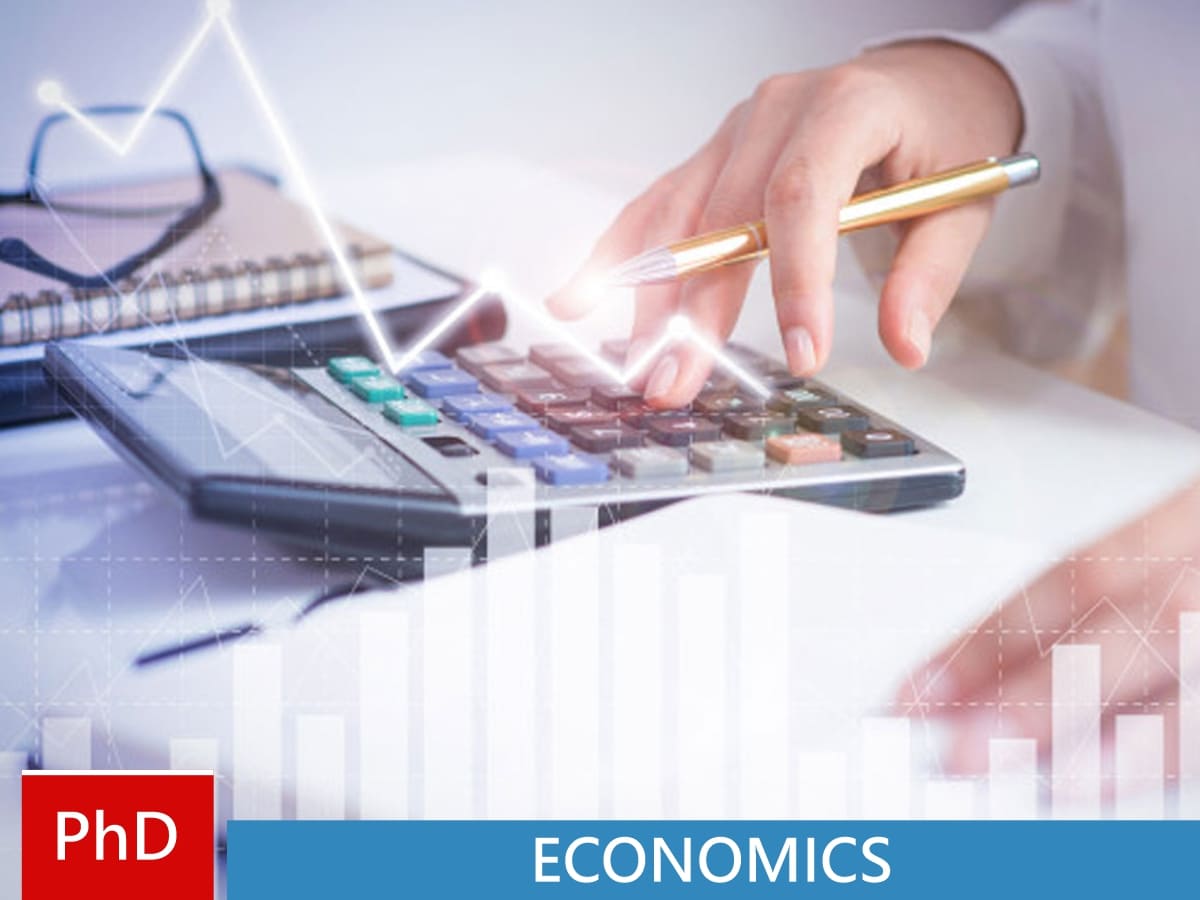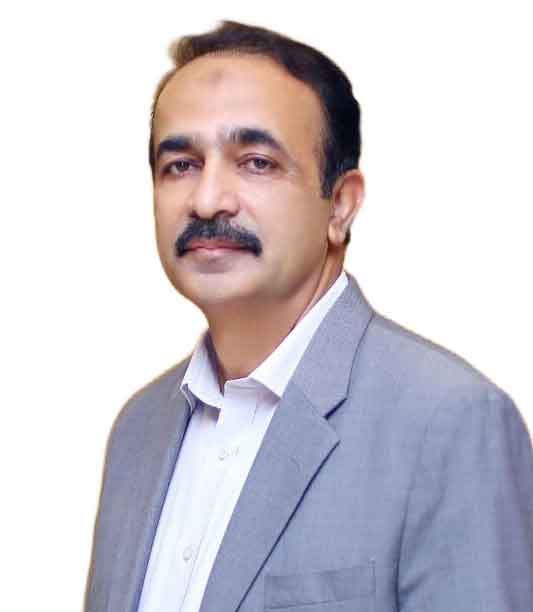An Empirical Analysis of Electricity Demand in Pakistan
|
Volume # 1 |
Issue # 4 |
Page # 116-139 |
Year of Publication: 2011 |
How Immigration affects the Health and Subjective Well-being: Evidence from Destination Countries
Journal Name: Journal of Applied Economics and Business Studies
|
Volume # 6 |
Issue # 4 |
Page # 17-38 |
Year of Publication: 2022 |
Medicine Affordability and Accessibility: A Case of Low and Middle-Income Group of Gujranwala District
Journal Name: International Journal of Management Research and Emerging Sciences
|
Volume # 12 |
Issue # 3 |
|
Year of Publication: 2022 |
Economics of Nations during Austerity? Does Government Size Matters?
Journal Name: Iranian Economic Review
|
|
|
|
Year of Publication: 2022 |
Do Climate Changes influence the Agriculture Productivity in Pakistan? Empirical Evidence from ARDL Technique
Journal Name: Forman Journal of Economic Studies
|
Volume # 18 |
Issue # 1 |
Page # 97-116 |
Year of Publication: 2022 |
Can a Path to Peace Promote Export Growth? Evidence from Pakistan and its Trading Partners
Journal Name: Quality and Quantity: International Journal of Methodology
|
|
|
|
Year of Publication: 2021 |
Optimum Fiscal Spending at Aggregated and Disaggregated level in Pakistan
Journal Name: PalArch's Journal of Archaeology of Egypt / Egyptology
|
|
|
|
Year of Publication: 2021 |
Profiling Crime in Pakistan: An Aggregated and Disaggregated Socioeconomic Analysis
Journal Name: Forman Journal of Economic Studies
|
Volume # 17 |
Issue # 1 |
Page # 77-97 |
Year of Publication: 2021 |
Profiling Crime in Pakistan: An Aggregated and Disaggregated Socioeconomic Analysis
Journal Name: Forman Journal of Economic Studies
|
Volume # 17 |
Issue # 1 |
Page # 77-97 |
Year of Publication: 2021 |
The Impact of Trade Liberalization on Employment and Wages: Panel Evidence from Developing countries
Journal Name: Journal of Economics and Management Sciences
|
Volume # 2 |
Issue # 1 |
|
Year of Publication: 2021 |
Does Peace Promote Bilateral Trade Flows? An Economic Analysis of Panel Data in Asian Perspective
Journal Name: Comparative Economic Studies
|
Volume # Vol. 43 |
|
Page # 350-361 |
Year of Publication: 2021 |
Exploring the Relationship between Earnings and Job Satisfaction: A Case Study of Home-based Workers in Gujranwala
Journal Name: PalArch's Journal of Archaeology of Egypt / Egyptology
|
|
|
|
Year of Publication: 2021 |
Inflation Dynamics, Globalization and Monetary Policy: Empirical Evidence from Selected South and South East Asian Countries
Journal Name: Forman Journal of Economic Studies
|
Volume # 16 |
|
Page # 113-132 |
Year of Publication: 2020 |
A Spatial Analysis of Terrorist Attacks in Pakistan
Journal Name: Pakistan Economic and Social Review
|
Volume # Vol. 58 |
Issue # 2 |
Page # 237- 267 |
Year of Publication: 2020 |
Impacts of Monetary Policy and Exchange Rate on Green Investment in Pakistan
|
|
|
|
Year of Publication: 2020 |
Sectarian Terrorism in Pakistan: Causes, Impact and Remedies
Journal Name: Journal of Policy Modeling
|
Volume # Vol. 43 |
|
Page # 350-361 |
Year of Publication: 2020 |
The Informal Economy of Pakistan: An Institutional and Fiscal Policy Perspective
Journal Name: Al-Qalam
|
|
|
|
Year of Publication: 2020 |
Probing Real Economic Growth through Institutional Quality and Fiscal Policy in Pakistan
Journal Name: Elementary Education Online
|
|
|
|
Year of Publication: 2020 |
SEM Estimates: The long-term analysis of Pakistan’s electricity demand and supply gaps
Journal Name: European Online Journal of Natural and Social Sciences
|
|
|
|
Year of Publication: 2019 |
An Empirical investigation of Banking sector performance in Pakistan and Srilanka, by using CAMELS approach
|
|
|
|
Year of Publication: 2025 |
The Measurement of Pakistan’s Black Economy: A Modified Currency Demand Approach
Journal Name: Pakistan Economic and Social Review
|
Volume # 56 |
Issue # 2 |
Page # 211-229 |
Year of Publication: 2018 |
Transmission Mechanism of Intergenerational Mobility in Socio-Economic Status.
Journal Name: Forman Journal of Economic Studies
|
Volume # 15 |
|
Page # 227-245 |
Year of Publication: 2018 |
Analysis of Food Demand Patterns of Sindh Province, Pakistan
|
|
|
|
Year of Publication: 2025 |
Insight of the Quality of Housing of Pakistani Households: Using New Methodology and the Country Unit Record Data
Journal Name: Forman Journal of Economic Studies
|
Volume # 13 |
|
Page # 121-133 |
Year of Publication: 2017 |
Military Expenditure and Economic Growth: A Panel Data Analysis
Journal Name: Forman Journal of Economic Studies
|
Volume # 13 |
|
Page # 161-175 |
Year of Publication: 2017 |
Causal Linkages between Terrorism and Economic Growth; Evidence from the four Provinces of Pakistan
Journal Name: Peace Economics, Peace Science and Public Policy
|
Volume # 24 |
Issue # 1 |
|
Year of Publication: 2017 |
Macroeconomics instability and its role on income inequality in developing countries: A panel data analysis
|
|
|
|
Year of Publication: 2025 |
Causes and Incentives for Terrorism in Pakistan
Journal Name: Journal of Applied Security Research
|
Volume # 10 |
Issue # 2 |
Page # 181-206. |
Year of Publication: 2015 |
Economic development and banking sector growth in Pakistan
|
|
|
|
Year of Publication: 2025 |
Economic development and banking sector growth in Pakistan
|
|
|
|
Year of Publication: 2025 |
An RCA Analysis of Textiles and Clothing in Pakistan, India, and Bangladesh
|
|
|
|
Year of Publication: 2025 |
Poverty and the Quality of the Housing: Construction of Index Using FFDP Approach
Journal Name: Forman Journal of Economic Studies
|
Volume # 19 |
Issue # 1 |
Page # 31-66 |
Year of Publication: 2014 |
Historical Patterns of Terrorism in Pakistan
Journal Name: Defense and Security Analysis
|
Volume # 30 |
Issue # 3 |
|
Year of Publication: 2014 |
Poverty, Inequality, Political Instability and Property Crimes in Pakistan: A Time Series Analysis
Journal Name: Asian Journal of Law and Economics.
|
Volume # 4 |
Issue # 1-2 |
Page # 1-28 |
Year of Publication: 2013 |
Modeling Demand for Money in Pakistan: An ARDL Approach
Journal Name: Forman Journal of Economic Studies
|
Volume # 7 |
|
Page # 75-88 |
Year of Publication: 2011 |
Exchange Rate Exposure on the Automotive Industry: Evidence from USA and Japan
Journal Name: Forman Journal of Economic Studies
|
Volume # 7 |
|
Page # 25-54 |
Year of Publication: 2011 |
Economic Impact of Climate Change on The Agricultural Sector of Punjab
Journal Name: Pakistan Development Review Papers and Proceedings Part II
|
Volume # 49 |
Issue # 4 |
Page # 771-798 |
Year of Publication: 2010 |
Public Policy and Private Investment
Journal Name: Forman Journal of Economic Studies
|
Volume # 3 |
|
Page # 100-110 |
Year of Publication: 2007 |
The Behavior of FDI in South Asian Countries
Journal Name: Forman Journal of Economic Studies
|
Volume # 2 |
|
Page # 18-27 |
Year of Publication: 2006 |
The Incidence of Government Expenditure on Health: A Case Study of Pakistan
|
Volume # 2 |
|
Page # 39-47 |
Year of Publication: 2006 |
Insights into Selected Features of Pakistan’s Most Wanted Terrorists. Terrorism and Political Violence
Journal Name: Terrorism and Political Violence
|
Volume # 30 |
Issue # 1 |
Page # 47-73 |
Year of Publication: 2016 |
Shair, W., Majeed, M. T., & Ali, A. (2021). Labour Participation Decision and Preferences towards Different Employment Status in Response to Remittances: Evidence from the Provincial Capital of Punjab and Khyber Pakhtunkhawa (KPK), Pakistan. Iranian E
|
|
|
|
|
“Recession in the BRI States” published in The Nation, dated 09-07-2022.
|
|
|
|
|
Shair, W., Naeem, S., & Rasul, F. (2021). Nexus Of Covid-19 News With Stock Market Returns And Volatility In Pakistan. Bulletin of Business and Economics (BBE), 10(2), 92-99. HEC recognized.
|
|
|
|
|
“Conflicts And The US” published in The Nation, dated 02-04-2022.
|
|
|
|
|
Ali, M., Shair, W., Rahman, F., & Naeem, S. (2021). The Relationship between Cash Flow Volatility and Dividend Payout Ratio: Evidence from Pakistan’s Non-Financial Firms. Empirical Economic Review, 4(2), 32-48. HEC recognized.
|
|
|
|
|
“Economic Sovergneity Under the NSP” published in The Nation, dated 02-03-2022.
|
|
|
|
|
Shair, W. (2020). Is Optimizing or Non-optimizing objective of a Firm in the Gig Economy? A Chronological Approach. Bulletin of Business and Economics Vol 9(2 ), pp. 101 -107. HEC recognized.
|
|
|
|
|
“Exchange rate Instability and Foreign Debt” published in Daily Times, dated 25-09- 2021.
|
|
|
|
|
Labor Market Outcomes of Non-migrant Members in Response to Remitances Evidance from Provincial Capital of Punjab and Khyber Pakhtunkhawa (KPK)
|
|
|
|
|
“Pakistan’s Blue Economy: An unexpected potential” published in Daily Times, dated 03-07-2021.
|
|
|
|
|
“The gig economy is helping tackle COVID-19 unemployment in Pakistan” published in Global Village Space, dated 22-07-2020.
|
|
|
|
|
Shair, W., Hussain, S., & Idrees, M. (2023). Social Safety Net Programs and Food Insecurity in Pakistan. Social and Economic Studies within the Framework of Emerging Global Developments.
|
Volume # II |
|
Page # 105-120 |
|
Shair, W. & Majeed, M.T. (2020). Labor Market Outcomes of Non-Migrant Members in Response to Remittances : Evidence from Provincial Capital of Punjab and Khyber Pakhtunkhawa (KPK), Review of Socio-Economic Perspectives, Vol 5(1 ), pp. 1 -22.
|
|
|
|
|
Shair, W., Waheed, A., Kamran, M. M., & Kubra, N. (2022). Digital Divide in Pakistan: Barriers to ICT Usage among the Individuals of Pakistan. Journal of Economic Impact, 4(3), 196-204. HEC recognized.
|
|
|
|
|
Shair, W., Zahra, T., Tayyab, M., & Kubra, N. (2022). The Impact of the Digital Divide on Wage Gaps among Individuals in Pakistan. Journal of Policy Research, 8(4), 97-107. HEC recognized.
|
|
|
|
|
“Deregulation of Petroleum Prices in Pakistan: A Way Forward” published in The Nation, dated 06-10-2022. Also published in E-Newsletter of Pak China Study Centre Vol. 4, Issue 13, page 4.
|
|
|
|
|
